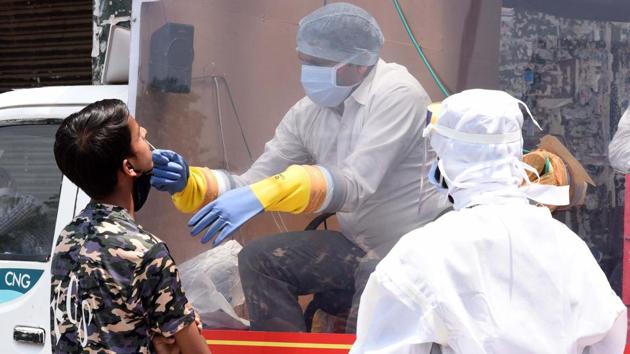Bias, stress, fake news: Scientists outline ways to change behaviour and adapt to life during Covid-19 pandemic
The review research, published in the journal Nature Human Behaviour, focuses on phenomena linked to COVID-19, connecting existing studies to potential courses of action in several areas, including group threat, fake news, social norms, stress, and coping.
Scientists have outlined ways by which people can change their behaviour to adapt to life during the COVID-19 pandemic, suggestions that can be useful in combatting racially driven bias, fake news, and help better manage stress.

The review research, published in the journal Nature Human Behaviour, focuses on phenomena linked to COVID-19, connecting existing studies to potential courses of action in several areas, including group threat, fake news, social norms, stress, and coping.
“Because the crisis requires large-scale behaviour change and poses significant psychological burdens on individuals, insights from the social and behavioral sciences are likely going to be very helpful for optimising pandemic response,” said study co-author Jay Van Bavel from New York University in the US.
“This interdisciplinary review points to several ways in which research can be immediately applied to optimize response to this pandemic, but also points to several important gaps that researchers should move quickly to fill in the coming weeks and months,” added co-author Robb Willer from Stanford University in the US.
Referring to recent attacks on ethnic Asians in predominantly white countries, the scientists said pandemics may, in fact, present opportunities to reduce religious and ethnic prejudice. “Coordinated efforts across individuals, communities, and governments to fight the spread of disease send strong signals of cooperation and shared values, which allow people to re-cast others who were previously considered out-group members as in-group members,” they wrote in the study.
To effectively curb the menace of fake news, the scientists said a “pre-bunking approach,” could be used, which centers on psychological inoculation.
Based on earlier studies, they said preemptively exposing people to small doses of misinformation techniques, including scenarios about COVID-19, can reduce susceptibility to fake news. The current research noted another preventative approach to counter fake news which involves subtle prompts that emphasise accuracy such as asking users to judge the veracity of a single neutral headline. According to the scientists, such prompts can improve the quality of the content that users share, and could be easily implemented by social media platforms.
“How much people change will be influenced by aspects of the social and cultural context,” the researchers wrote in the study. “The fact that people tend to follow social norms and cultural mores can sometimes have undesirable consequences,” they said. Citing an example, the scientists said the continuous exposure to news examples of people going out might explain why it was difficult to convince Italians to stay at home after the COVID-19 lockdown of March 11.
“But they also report that understanding these features of the social environment, such as social norms, social inequality, culture, and polarization, can help identify risk factors and successful messages and interventions,” they added.
According to the researchers, our decisions are influenced by social norms --what we perceive others are doing, or approve/disapprove of -- and that “informational influence” occurs when people use others’ behaviour as input for reasonable interpretations and responses. This effect is stronger when people are uncertain and outcomes are important such as during a pandemic, they added.
However, the scientists cautioned that our estimates of people’s behaviour are also frequently inaccurate. People can underestimate the frequency others engage in health-promoting behaviours like hand washing, and overestimate their unhealthy ones such as not properly covering one’s mouth when coughing, they explained. In order to effectively change behaviours by correcting misperceptions, the scientists pointed to the importance of public messages that reinforce health-promoting norms and not highlighting extreme or uncommon behaviours, such as panic buying.
The scientists also noted the value of online forums as hubs for mutual support, in particular, among individuals with rare illnesses, and psychological well-being amidst the lockdowns and physical distancing measures enforced in several parts of the world. They pointed to technologies, such as FaceTime and Zoom, as valuable tools in generating empathy and connection.
Van Bavel and Willer also recognised the potential barriers to these tools for seniors.
“Special attention should be placed on helping older adults, who might be less familiar with these technologies, to learn and acclimate to the potential richness of digital connections,” they wrote in the research.
“By applying the knowledge gained from earlier research, we hope that public health experts will be better equipped to communicate effectively and drive behavior change in a manner that yields global benefits,” Willer added.
(This story has been published from a wire agency feed without modifications to the text. Only the headline has been changed. )
Catch your daily dose of Fashion, Health, Festivals, Travel, Relationship, Recipe and all the other Latest Lifestyle News on Hindustan Times Website and APPs.



